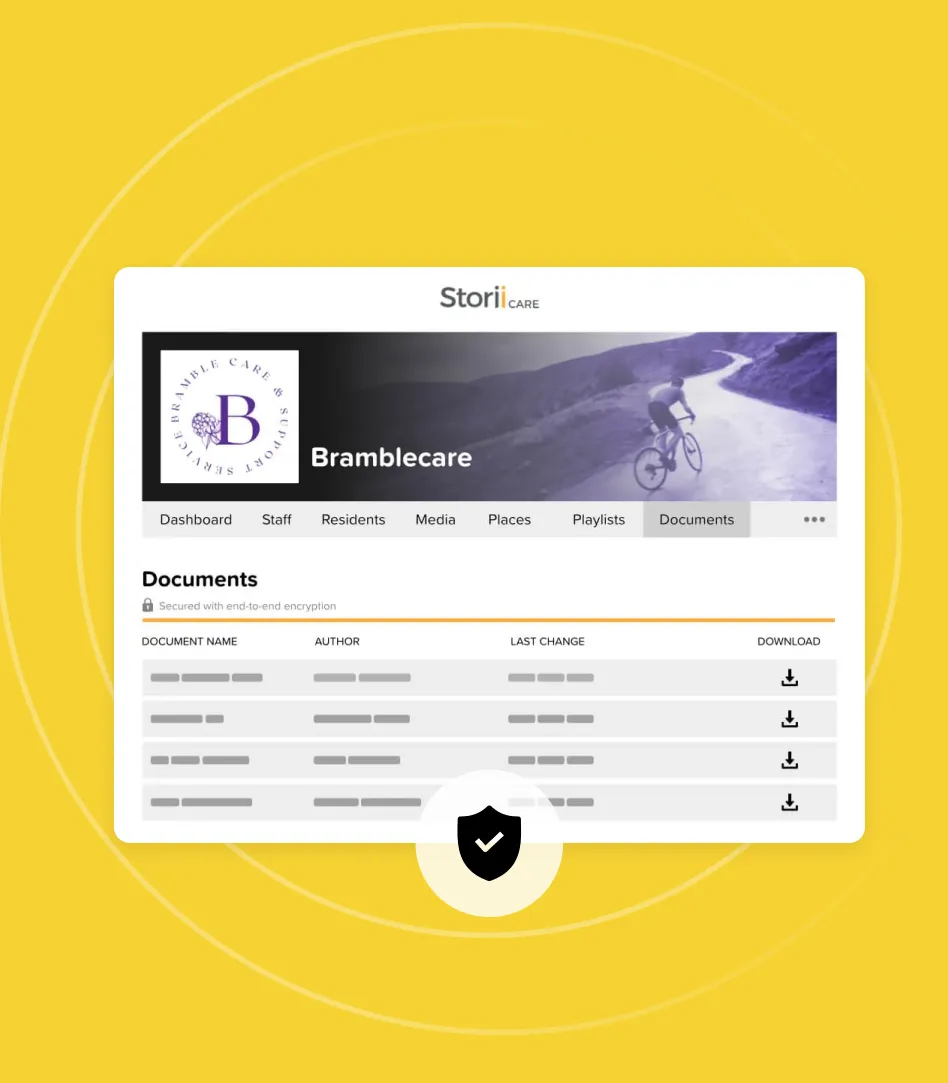Activities Staff in Residential Care: Two Approaches
When it comes to running activities programs for residential care or assisted living, there are two main approaches providers take.
Designated Staff
Some Senior Living providers hire an Activities Coordinator or several Activities staff that are managed by an Activities Director/Life Enrichment Director. These people are solely responsible for overseeing the planning and sourcing of both internal and external activities and events for residents. This is probably the most common scenario. However, there are still many care providers that opt for the alternative approach.
Whole-Service
With this approach activities programming is considered the responsibility of all care staff. Putting on activities is a communal effort in which each person working in a care home plays their part to ensure that residents have stimulating events and activities to participate in on a regular basis.
Designated Activities Staff: Advantages & Disadvantages
Advantages
- It’s important to have people who are highly organized, creative thinkers, confident in approaching people, and social in Activity roles. An activities program is probably going to be more successful when the person(s) in charge of it has a vested interest and passion for that kind of work.
- Activities staff have a good understanding of why activities are crucial for quality of life in a care setting and a dedication to seeing them through.
- Appointed staff will likely be able to manage time and budgets for activities more effectively.
Disadvantages
- Appointed activities staff often report that when they ask for input or assistance, there can be a “that’s not my job” attitude from other care and support staff.
- Only having one or two people in charge of activities can also mean that when someone is off work for any reason, activities and events don’t get prioritized.
- Activities staff shoulder the burden of having to plan things that accommodate a wide variety of needs and interests. This often means that they end up providing activities that cater to residents who actively participate, rather than those who are more difficult to reach or engage.
- A dedicated Activity Coordinator often ends up juggling too many roles at once - marketing, food service, transport, activity planning, caregiving, etc.
Whole-Service Approach: Advantages & Disadvantages
Advantages
- The burden of organizing and facilitating every activity is greatly reduced when all staff communicate and work together to put on an activity program in the nursing home.
- People’s skills can be used effectively. No one person can do everything with excellence and be talented at every aspect of a job role. With a team approach, tasks can be designated more efficiently when taking into consideration staff members' skills and qualities.
- Activity Coordinator burnout is very common. A whole-service approach avoids one person being bogged down with burnout and compassion fatigue.
Disadvantages
- People feel less personally responsible for something when they are part of a larger group of other responsible people. It is no surprise that activities tend to fall to the same few, proactive people in a team. This can lead to frustration and stress for those individuals.
- Care and support staff are already working a full-time role with its own responsibilities. Therefore, some people may resent being asked to do what they consider ‘extra’ work. This could lead to job dissatisfaction or an activities program that’s been organised half-heartedly.
- Pulling this approach off successfully requires a high level of communication and teamwork. This can be difficult to achieve in a care home where there is high turnover, staff shortages, an extremely busy environment, or a hands-off approach from management.
A Compromise
The who approaches to staffing have their respective benefits and drawbacks. What about developing a compromise between the two?
For this to be effective, a care service provider must have a strong ethos of teamwork. Not only that, but being equipped with digital care management systems that facilitate channels of communication and live information is necessary, too. Care staff should be encouraged to and capable of quickly and easily sharing ideas, contacts and opportunities with the Activities Coordinator.
In some services, Activities Coordinators and care staff may not cross paths much as their roles are so different, but there is no reason why this should be set in stone. All staff should understand why a diverse and robust activities program is important for the people they support. Meaningful, person-centered activities benefit not just service users, but their relatives and the entire care community. Fantastic activities programs will attract prospective residents so a return on an investment can definitely be made in this area.
Proactive leadership is essential to making this compromised approach work. Service managers are responsible for communicating that the success of activities is everyone’s responsibility, with recognition given to those who make efforts to engage with and support these efforts. This allows dedicated Activities Coordinator the necessary time and opportunity to use their particular skills to lead that process, with the support of a team alongside them and not simply behind them.
Digital System for Activity Teams
At StoriiCare we understand the importance of providing engaging and meaningful activities for everyone you support. However, we know that this can be difficult to achieve, especially if you have a limited time frame and budget allocated for activities.
StoriiCare has a dedicated suite of features designed to help activity professionals save time managing activity calendars, attendance, engagement and more! Trusted by both large and small residential care and adult day services around the globe, StoriiCare is a solution worth exploring.
To find out about how StoriiCare could benefit your care community, schedule a demo.


.avif)

.png)
.png)
.png)










